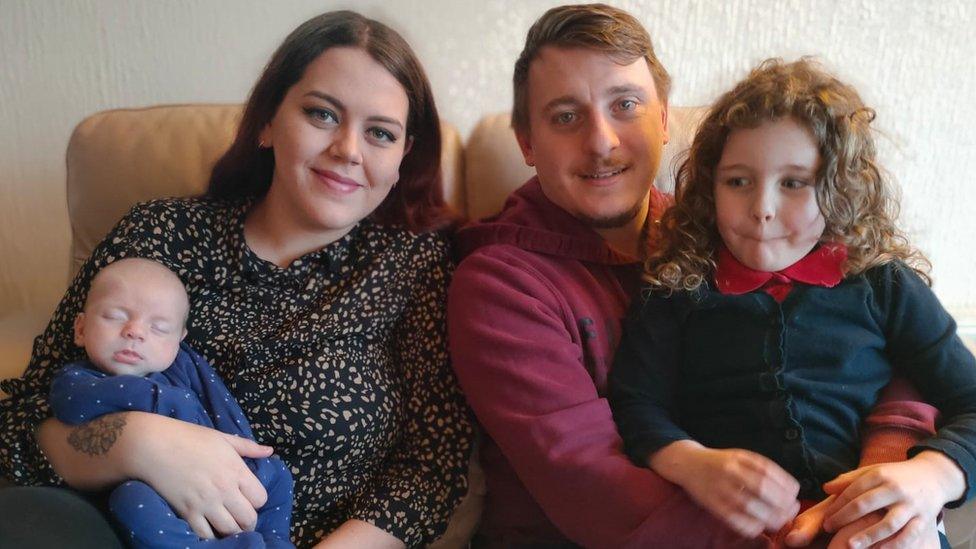Babies in England hospitals with Omicron as a precaution
- Published
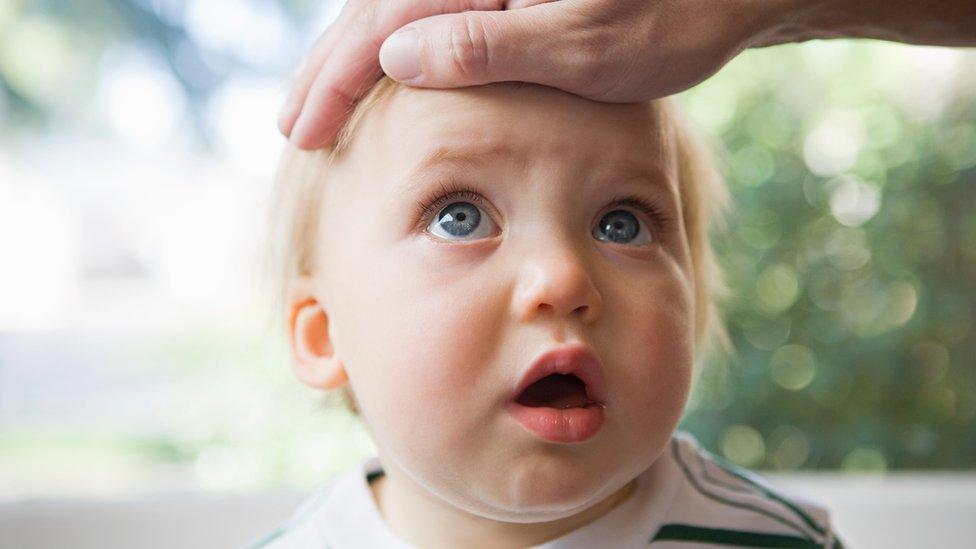
More babies are going to hospital with Covid during this latest Omicron wave but they are not very sick with the virus, say UK experts - based on the available data since December.
Doctors say early findings are "incredibly" encouraging - Covid remains very low-risk.
They say parents can be reassured, and the NHS has space if babies need care.
While many of the babies had a fever with or without a cough, few needed treatment such as oxygen.
The rise in Covid-related paediatric admissions which hospitals have been seeing is largely for under-fives, and particularly children under the age of one.
NHS England conducted a very rapid evaluation of around 50 admissions of babies with Omicron across around 33 hospitals.
It continues to gather more evidence as new cases occur.
Meanwhile, early data has also been released by the Scientific Advisory Group for Emergencies, external (Sage) comparing around 171 child admissions with Omicron to those earlier in the pandemic.
With more of the virus circulating at the moment, there is a greater chance that children will catch Covid. Around 4.3 million, or one in every 15 people, are thought to be infected with Covid at the moment. People aged 20 to 29 have the highest rates, and the over-80s the lowest.
As with earlier in the pandemic, most children and babies who catch Covid will not become ill, but a small proportion will. Some may be in hospital for other reasons, but test positive for the virus while there.
Prof Calum Semple, who advises the Government as part of Sage, said: "Our study has shown that there has been an increased proportion of children being admitted in the last four weeks associated with the onset of Omicron and this has been particularly driven by children under the age of one.
"The striking feature is that we're now seeing essentially 42% of the children are under the age of one, whereas previously it was around about 30%."
Prof Russell Viner, who is an expert in child health at University College London, said Covid was behaving like normal winter viruses in children: "Clinically, this picture is incredibly reassuring. Half were in for observation only. The average length of stay was low...around two days."
Even babies with other serious medical complications do not appear to be getting very ill with the virus.
When babies and infants do get Covid symptoms, they tend to be a raised temperature and a slight cough.
A fever is something parents or carers should consider seeking medical advice about.
And women who are pregnant can help protect themselves and their baby by getting vaccinated against Covid.
Unvaccinated mums-to-be who catch the virus near the end of pregnancy are at higher risk of birth-related complications, including premature births and stillbirths.

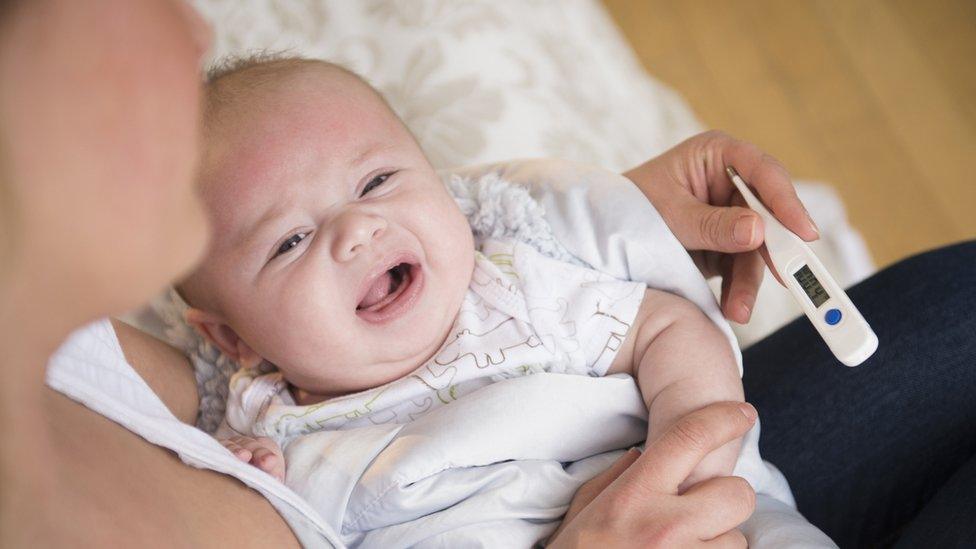
Baby fever advice
Ideally, use a digital thermometer to get a fast, accurate reading
A fever is a temperature of 38C or above and can be a sign of an infection such as Covid
You can contact your GP or call 111 for advice if your baby has a temperature
Some can be managed at home
Source: NHS, external

The Royal College of Paediatrics and Child Health (RCPCH) says children's wards are experiencing a busy winter, as is usual for this time of year. While paediatricians are seeing lots of babies and young children with fever and respiratory conditions, very few with Omicron are needing paediatric intensive care.
RCPCH President Dr Camilla Kingdon said: "We need to watch this space but the picture is a reassuring one."
- Published9 July 2021
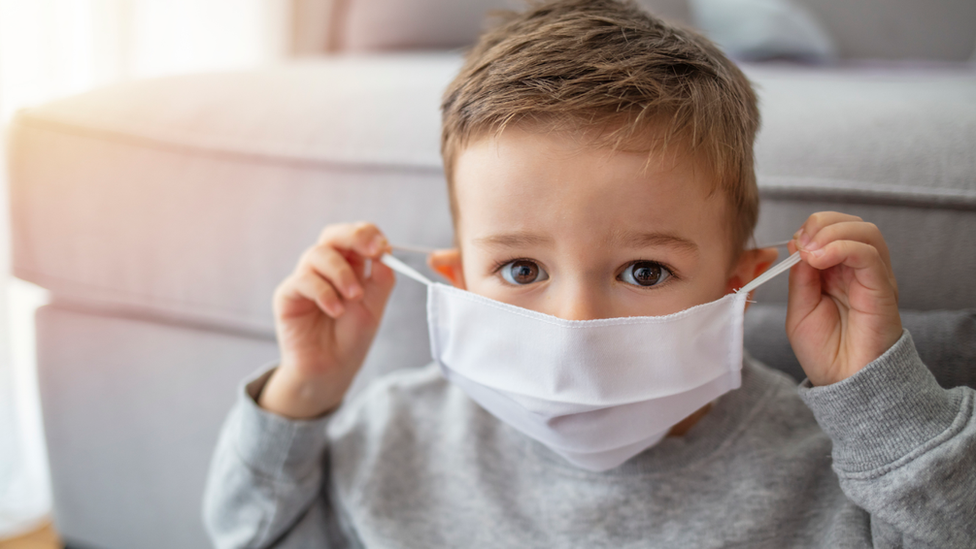
- Published22 December 2021
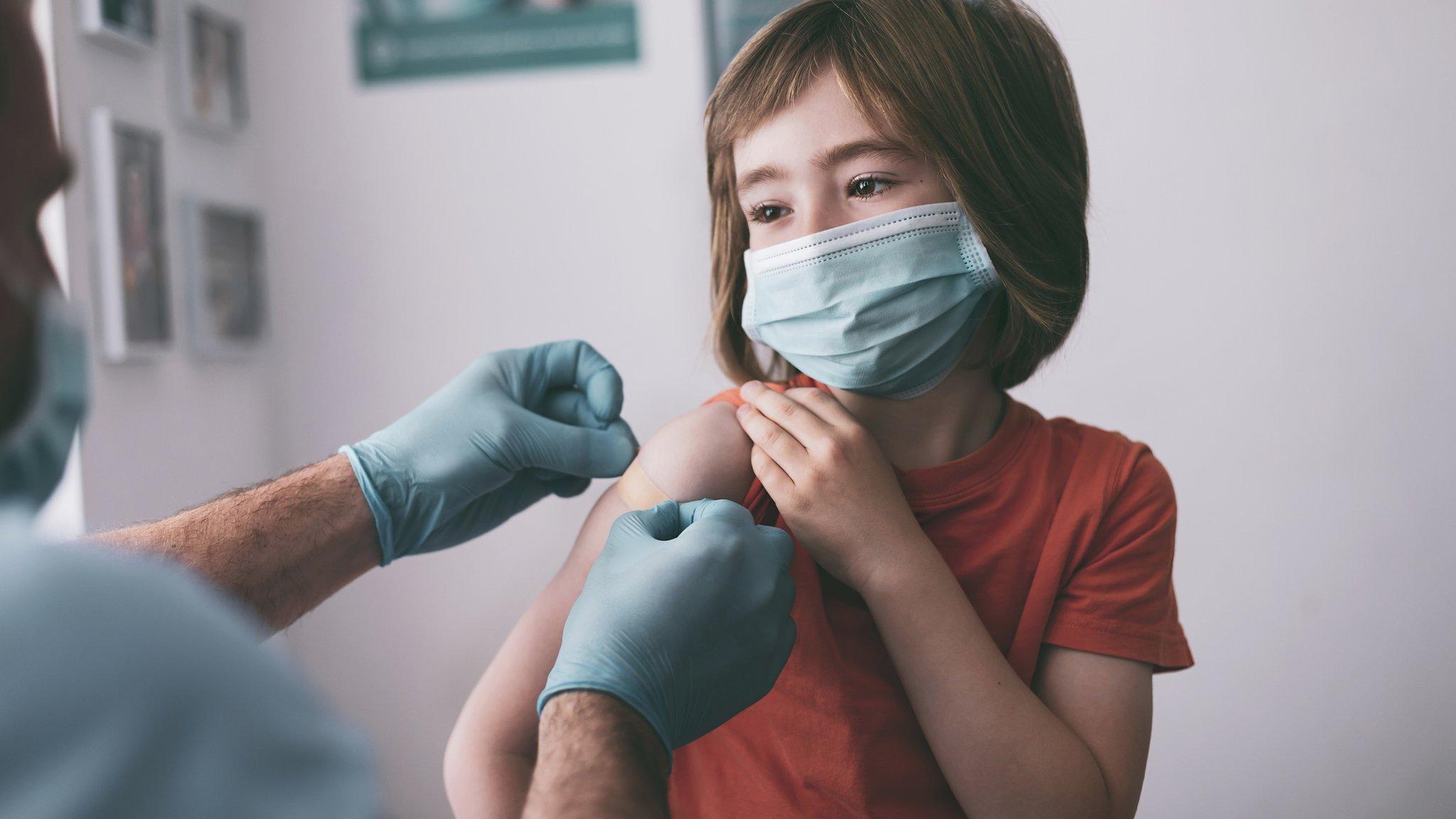
- Published12 January 2022
